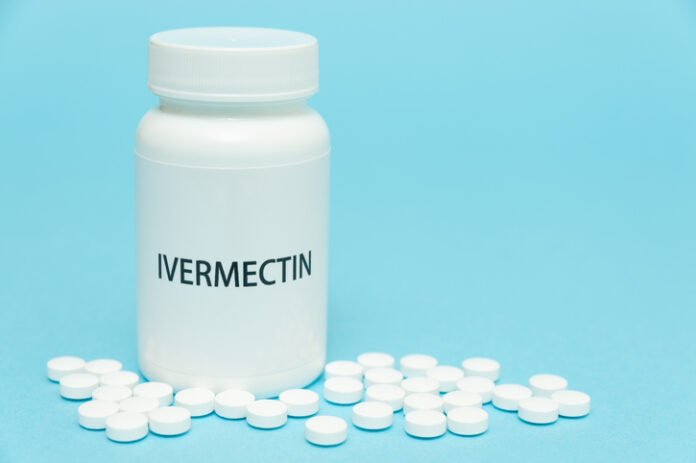Ivermectin, a low-cost, generic drug used for decades to fight parasites, is emerging as a critical agent in keeping thousands of COVID-19 patients from getting sicker, testified a physician during a U.S. Senate committee hearing on December 8 to discuss early treatment approaches.
Pierre Kory, M.D., an associate professor of medicine at St. Luke’s Aurora Medical Center in Milwaukee, Wisconsin and a member of a non-profit organization of critical care physicians called the “Front-Line COVID-19 Critical Care Alliance, stated there is now data from over 20 “well-designed clinical studies, ten of them randomized, controlled trials,” showing Ivermectin’s effectiveness. The alliance posted its findings on the Open Science Foundation-print server in early December as well as a meta-analysis reviewed by Ph.D. researchers and scientists.
“These data show that ivermectin is effectively a ‘miracle drug’ against COVID-19,” said Kory in his statement. Kory said every study on Ivermectin treatment for COVID -19 has consistently shown “statistically significant benefits in decreasing transmission rates, shortening recovery times, decreasing hospitalizations, or large reductions in death.” The data has also been backed up by animal and lab studies, said Kory.
Sen. Ron Johnson (R – WS), chair of the Homeland Security & Governmental Affairs Committee submitted data into the record and sent a letter to the National Institutes of Health, co-signed by committee member, Sen. Rand Paul (R – KY) requesting the agency review it.
NIH Guidance, Months Old
NIH recommends against the use of ivermectin for COVID-19, except in clinical trials and has not updated this guidance since August 17. The U.S. Food and Drug Administration (FDA) issued a warning against the drug in April 2020.
FDA focused on the use of ivermectin in veterinary medicine and stated it was concerned that a research article on such practice would encourage consumers to self-medicate by taking the ivermectin intended for animals. NIH cited one non-peer-reviewed study that appeared with “limitations” making “it difficult to draw conclusions about the efficacy” of using the drug on COVID patients.
Kory stated that there is now new evidence based on studies involving thousands of patients, more evidence than what was demonstrated in a July study, known as the “Recovery” trial, which showed a steroid, dexamethasone, to reduce mortality from COVID-19.
Kory shared graphs of ivermectin treatment in Peru and Paraguay. In Peru, the city of Lima restricted ivermectin, and the case count remained higher than the parts of the country using the drug (see graph). A similar case drop occurred in Paraguay.
Johnson asked one of the witnesses, Armand Balboni, M.D., who has worked with government health agencies as to why bureaucracies do not have the incentive to conduct trials to repurpose established drugs. Private companies must spend millions of dollars on their own to win approvals with little hope of a return on the investment on a generic drug.
“It should be government doing these trials,” stated Johnson.
“We need a forcing function,” responded Balboni.
The agencies are trying to do the right thing “but sometimes it doesn’t always turn out that way,” stated Balboni. “When under stress, they fall back on what they know.”
Censorship from Social Media
Sen. Josh Hawley (R – Missouri) asked whether the physicians have run into censorship from social media platforms when sharing their experiences treating COVID-19.
“Every time we mention ivermectin, we get put in Facebook jail,” said Kory. Kory said he can only guess because Facebook has not given his organization a specific explanation. “I understand the intent [in controlling misinformation], I just wish some credibility would apply to us.”
Hawley asked if Kory was aware of Facebook having any epidemiologists on staff making the censorship determinations. “Not that I am aware,” responded Kory.
Covid “Toolbox” Needed
The hearing also discussed other safe, available, and low-cost agents being used to keeping people from getting the virus or getting sicker if they’ve been exposed. The physicians discussed zinc, vitamins C and D, quercetin, hydroxychloroquine, and favipiravir.
Johnson asked whether there were any real dangers to prescribing these drugs, as opposed to doing nothing, which has been the conventional protocol, until someone presents with severe symptoms.
“The risk is trivial, if at all,” stated Ramin Oskoui, M.D, who discussed how the literature on the use of these agents is increasing and how now, in the UK and Scotland, vitamin D is now being distributed to the elderly.
The physicians also pointed out that 3.7 billion doses of ivermectin have been given since its inception and billions more for hydroxychloroquine, with little to no harm.
Oskoui said what is needed is a COVID treatment toolbox. “This need not be binary. We need all hands on deck.”
Jean-Jacques Rajter, M.D. made an impassioned plea at the hearing. “This is heartbreaking. We need more funding at regulatory agencies to see how effective (these approaches) are. I cannot continue to stand by and see hundreds and hundreds of people die across the country. There are easy solutions and it’s time we look at this data and see that it is real,” said Rajter.
AnneMarie Schieber (amschieber@heartland.org) is managing editor of Health Care News.






















The combination of ivermectin with doxycycline (and by the way, even doxycycline on its own) has also been shown in case controlled trials for the former and at least case series for the latter to be highly effective! The number of lives lost because MDs are forbidden to use these approaches in many jurisdictions is criminal quite frankly.